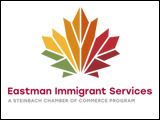The Canada Border Services Agency (CBSA) reminds all travelers that it is important to remember that certain food, plants, animals and related products are restricted or prohibited because they can harbor foreign animal and plant pests and diseases. These pests and diseases could threaten Canada’s economy, pose a risk to human, plant or animal health, or cause irreparable harm to Canada’s crops, livestock, or environment.
Canadian law requires that you declare all goods including food, plants and animals and related products that you are bringing into Canada. If you do not declare your products, the CBSA could confiscate them and you could face monetary penalties, and/or prosecution.
When you are planning your trip abroad, check beforehand to see if the goods you want to bring back are restricted or prohibited from entering Canada. General guidelines on what food, plants, animals and related products that you can or cannot bring into Canada can be found on the Canadian Food Inspection Agency’s (CFIA) website. Specific CFIA import requirements for each product that you plan to bring to Canada can be found by consulting the CFIA’s Automated Import Reference System (AIRS).
All raw poultry, poultry products and by-products that are not fully cooked, including eggs and raw pet foods originating from the states of Oregon, Washington, Idaho, California and Minnesota are prohibited from entering Canada until further notice.
Residents returning to Canada after being out of the country for at least 24 hours are exempt from paying duties and taxes on up to $200 of goods purchased abroad.
The exemption limit for those returning after at least 48 hours abroad is $800. There are no duty and tax exemptions for out-of-country trips of less than 24 hours.



